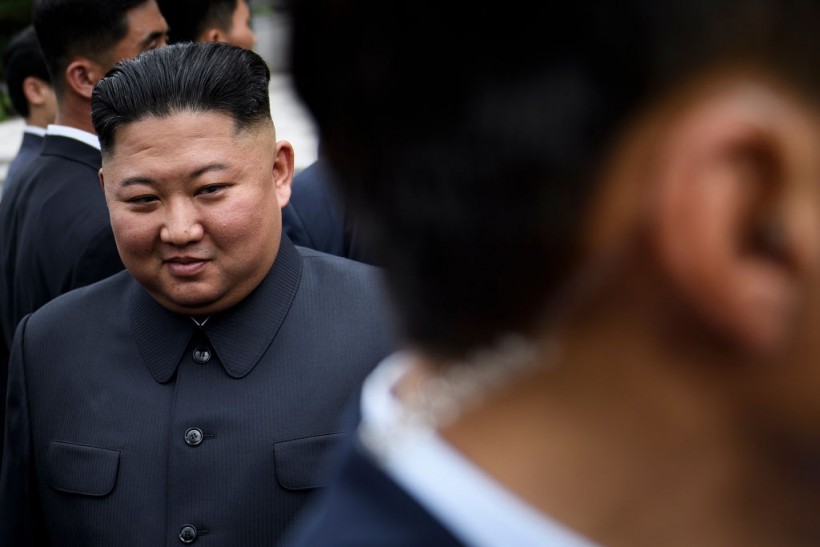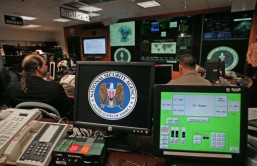North Korean leader Kim Jong Un recently supervised the testing of a new surface-to-sea missile and paid a visit to an essential munitions manufacturing facility. During his visit, he reinforced the need to increase weapons production.
South Korea's military reported launching multiple cruise missiles off North Korea's east coast on Wednesday. These tests come as part of a series of similar actions in recent weeks, leading up to the April general election in South Korea, as per Reuters.
North Korea Missile Tests

North Korea's leader Kim Jong-un walks to a meeting with US President Donald Trump in the Demilitarized Zone (DMZ) on June 30, 2019, in Panmunjom, Korea.
The Joint Chiefs of Staff reported the detection of unidentified cruise missiles over the waters northeast of Wonsan around 09:00 today, heightening concerns over North Korea's military activities. South Korea-US intelligence authorities are diligently conducting a detailed analysis of the situation, while the military remains on high alert, reinforcing surveillance and vigilance.
The recent increase in tensions stems from North Korea's current release of a successful test of a new control system for a multiple rocket launcher, highlighting the enhanced battlefield capabilities. This move contributes to a string of provocative actions carried out by North Korean leader Kim Jong-un. He has declared South Korea the country's "principal enemy" this year, dissolved agencies focused on reunification, and issued threats of war over even the smallest territorial violation.
Apart from changing its approach to diplomacy, Pyongyang has increased the range of its weapons testing, demonstrating its ability to test a "underwater nuclear weapon system" and launch a hypersonic ballistic missile powered by solid fuel. Speculation is rife among experts regarding the recent surge in cruise missile tests, with some suggesting that these weapons could potentially be sent to Moscow for use in Ukraine.
The relationship between North Korea and Russia has strengthened in recent months, with Kim Jong-un's rare visit to Russia to meet President Vladimir Putin in September. Allegations have arisen that North Korea supplied Russia with weapons in exchange for technical support for Kim's satellite program, potentially violating UN sanctions on both nations, according to SCMP.
Read Also: Israel Recalls Delegation From Hamas Talks, Calls Their Demands Delusional
North Korea's Unrestricted Cruise Missile
Unlike ballistic missiles, cruise missiles are not prohibited under current UN sanctions on Pyongyang. Their jet-propelled nature and lower altitude flight make them harder to detect and intercept, raising concerns about their potential use in conflicts.
Kim Jong-un reiterated on Friday that North Korea would not hesitate to "put an end" to South Korea if attacked, emphasizing Seoul as the North's "most dangerous and first enemy state and invariable arch-enemy."
Meanwhile, concerns have been raised about the possibility of North Korea exporting weapons to Russia for their involvement in the conflict in Ukraine. Ahn Chan-il, a defector-turned-researcher, suggests that the ongoing weapon tests may be addressing issues with the quality of weapons shipped to Moscow.
There are concerns that North Korea would be using its military actions to pressure Washington into recognising its nuclear status and demanding concessions, given that both South Korea and the United States are in election years. Many experts believe that the aggressive language and military actions from North Korea could escalate, especially in areas of contention such as the western sea boundary between the Koreas.
The United States, South Korea, and Japan are responding to North Korea's continued development of a wide range of weapons, including highly agile cruise missiles, by stepping up joint military drills and improving their nuclear deterrent tactics.
The international community is closely monitoring the developing situation, expressing increasing concerns about the potential impact of North Korea's aggressive stance, Independent reported.
Related Article: Estonia Believes Baltic States Should Prepare for Russian 'War Machine' in Three or Four Years




![[STUDY] Most Americans Think Inhaling Marijuana Smoke is Safer Than Cigarette; Health Experts Now Concerned](https://1075914428.rsc.cdn77.org/data/thumbs/full/280324/75/75/50/40/study-most-americans-think-inhaling-marijuana-smoke-is-safer-than-cigarette-health-experts-now-concerned.jpg)




